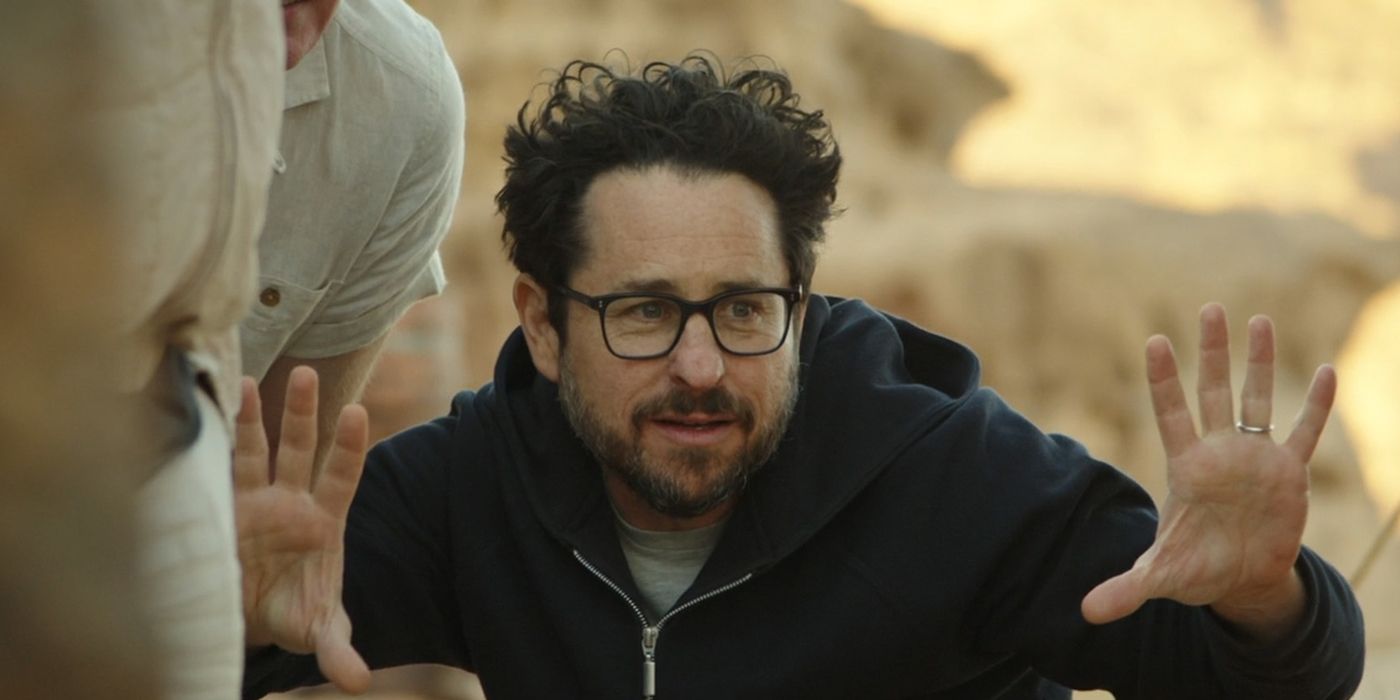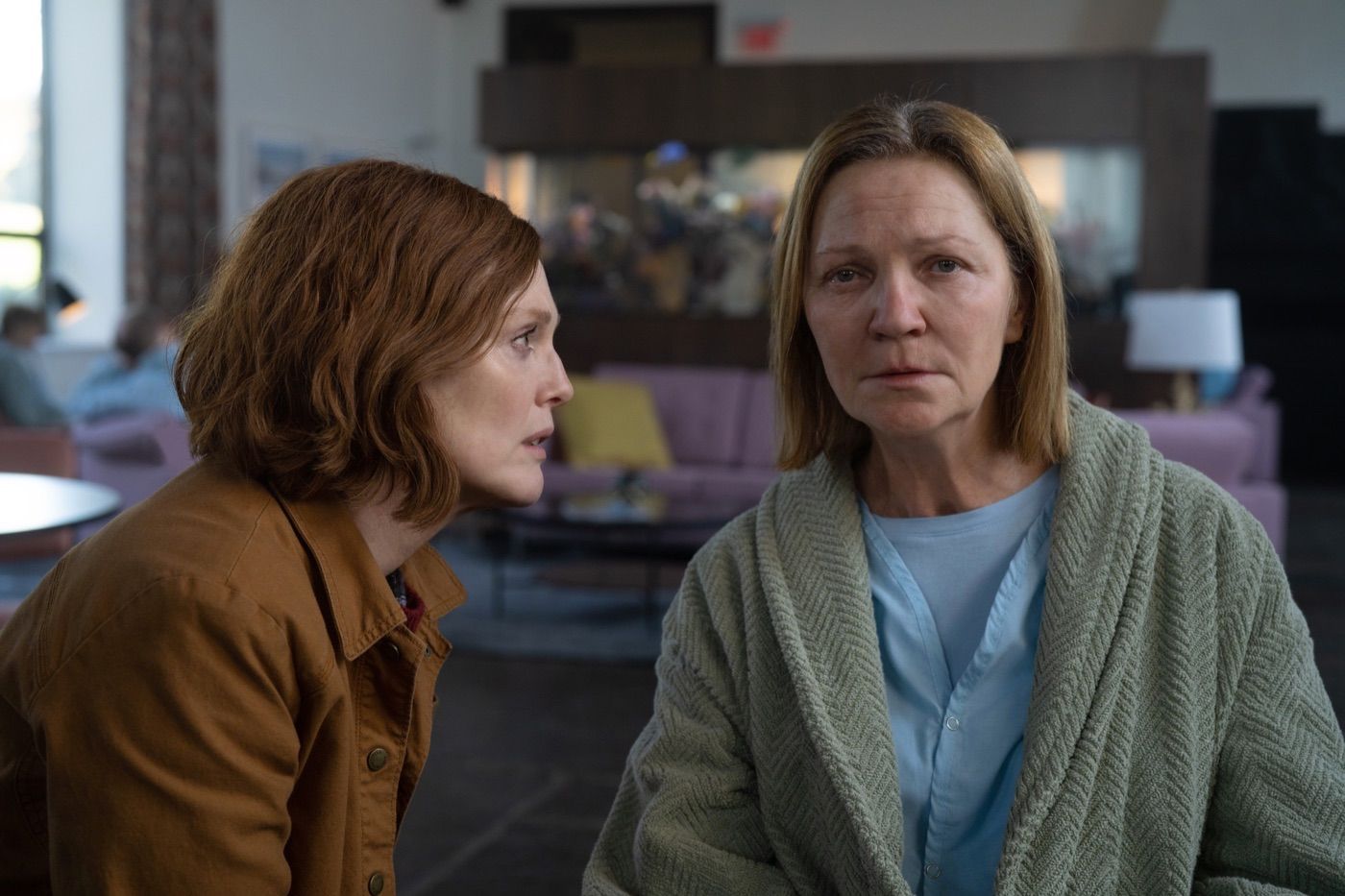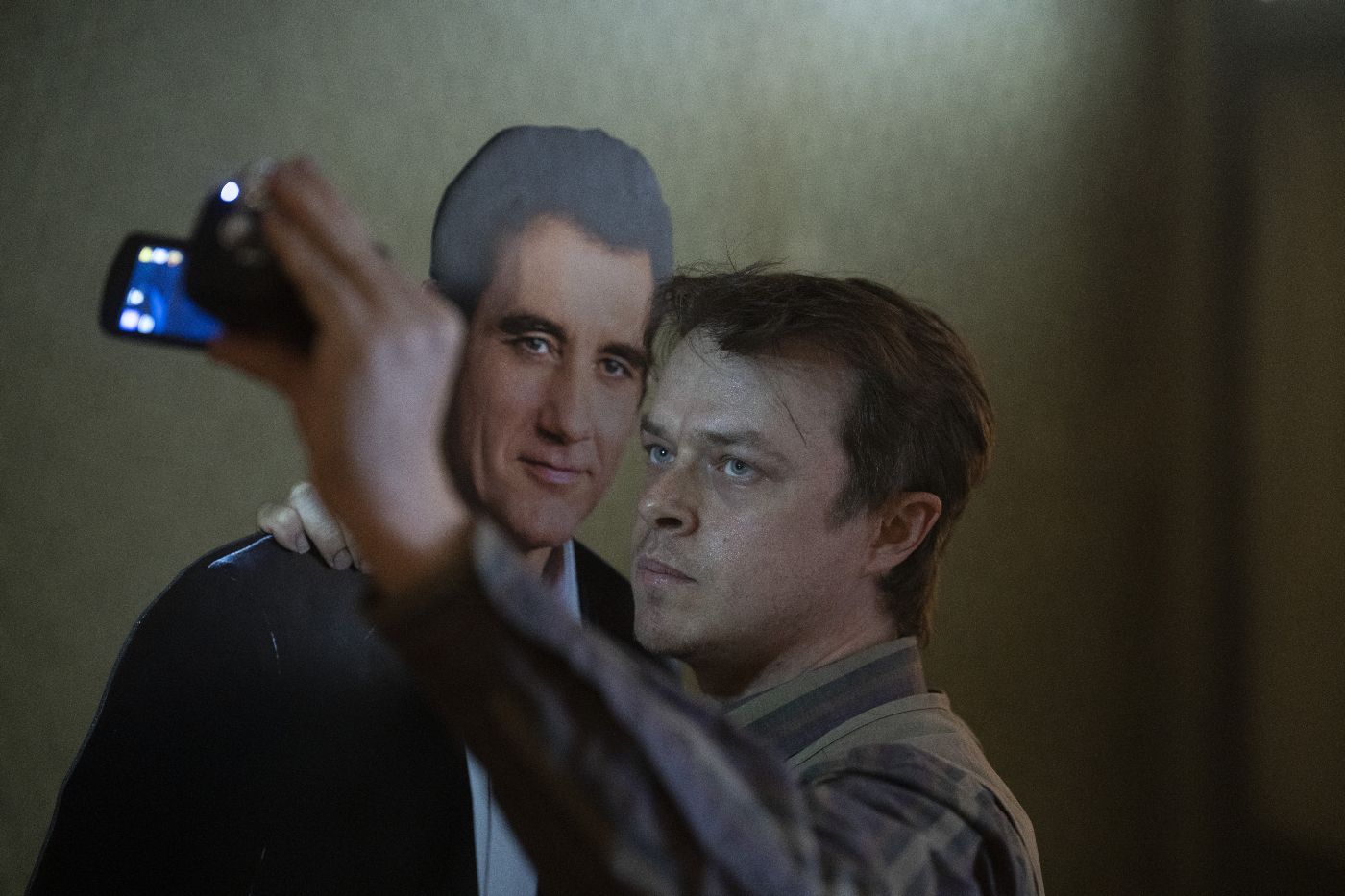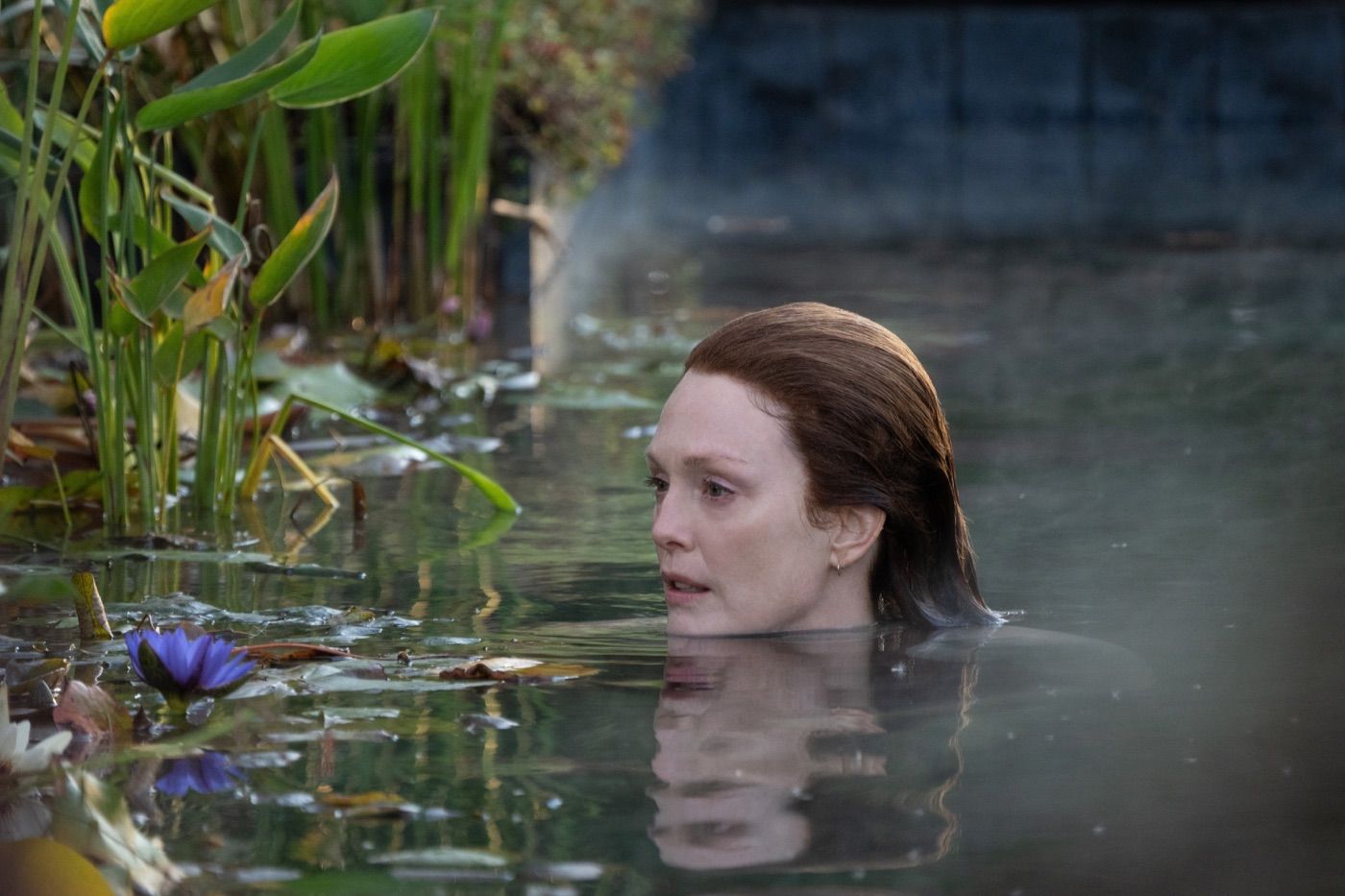Based on the novel by Stephen King, who has adapted the story himself, and directed by Pablo Larraín, the Apple TV+ limited series Lisey’s Story follows Lisey Landon (Julianne Moore) as she continues to find her footing after the death of her husband, beloved novelist Scott Landon (Clive Owen). Still unsure of how to put all the pieces of her life back together, Lisey must also contend with a rabid fan (Dane DeHaan) that’s dangerously obsessed with Scott’s work while trying to understand the world that her sister Amanda (Joan Allen) has retreated into.
During a virtual junket to promote the new series, Collider got the opportunity to chat 1-on-1 with executive producer J.J. Abrams about his love for the work of Stephen King, collaborating with this creative team, and the biggest challenges in weaving so many aspects of this story together. He also talked about how working on any pre-existing franchise is definitely a double-edged sword, how he’d like to focus on writing original ideas, and the one goal that his production company Bad Robot has always had.
Collider: What it is that you love about the work of Stephen King, as a storyteller? Were you first introduced to his work through his books or through watching his film adaptations first?
J.J. ABRAMS: His books. I was in junior high school and read Night Shift, Dead Zone, The Shining, and Carrie. It was really just finding him a terrifying author. I became obsessed with him, and then learned that he was writing under a pseudonym too, the Richard Bachman novels. It was always an obsession with him. And then, of course later I saw movies that were based on his books, but I was always a fan.
You had Julianne Moore also producing this, Stephen King wrote all of these episodes and was also producing it, and you had Pablo Larraín directing all of it. What did you most enjoy about collaborating with that creative team throughout this?
ABRAMS: The fact that we had Stephen taking one of his most favorite books of his and adapting it himself gave us an incredible foundation from the beginning. And then, knowing that we Pablo Larraín to sign on was such an added gift because he’s so talented and someone we want to work with for so long. Suddenly, we had a partnership, in the writer and the director, that was so undeniable. When Pablo said he was bringing on Darius Khondji, who is a DP that I’ve wanted to work with forever, and then we started to put the cast together and got this unbelievable group, with Julianne Moore, Clive Owen, Joan Allen, Jennifer Jason Leigh and Dane DeHaan, in every category, I felt like we were blessed with such brilliant people.
So, for me, my involvement in this, really from the beginning, was as support when needed. There were certain things that certainly didn’t translate as automatically from the novel to the screen, and working with Pablo and Stephen, and of course the people at Bad Robot and our amazing TV people, Ben Stephenson and Rachel Rusch Rich, we had all of these great minds working on this. Some projects, as a producer, your job is to put out fires every minute. Sometimes it’s about getting to celebrate the work that is being done in front of you. I felt like in this case, that was really where we were.
Words like psychological horror, mystery, and thriller have been used to describe this show, but it’s also a story about love, marriage, and the creative impulse, and there’s a brutality to it that can be quite disturbing. What are the biggest challenges in weaving all of those things together with a love story at its center?
ABRAMS: You’re describing the thing that is its superpower and its potential downfall, both as a novel and on screen. It is a really unlikely combination of elements. The thing that makes the book, and I’d like to think the [TV series], so effective is the fact that it was handled deftly, this cocktail of disparate elements. There’s the fact that you’ve got this fanciful place, you’ve got literal unearthly and terrifying creatures, and you’ve got an otherworldly element to this story, that somehow has to co-exist and walk the same tightrope as a marriage, loss, tragedy, sisterhood, love, commitment, obsession, fandom, and the creative impulse, but also the result of the creative impulse and what one might suffer from, as a result of that creative impulse. So, I feel like the story has always been something that is insanely challenging and weirdly sophisticated and deep for something that also has a real fairytale and fantastical element to it. It’s definitely a bizarre concoction, in all of its forms, and yet because Stephen is just such a master of the form, he’s able to pull it off and make it seem like, of course these things coexist. Don’t they always? And the answer is no.
After playing such a large role in shaping the Star Wars and Star Trek franchises, you’re also going to be playing a role in the direction of the DC universe. What most excites you about that prospect, and does it ever just completely blow your mind?
ABRAMS: Well, I’ll say that the opportunity to get to work on any pre-existing franchise is definitely a double-edged sword. And while I’m incredibly grateful and proud to have been involved in the projects, of course, all I see is what things could have been and what we might have done. The importance of it is not lost on me, as temporary custodians of any ideas, whether they pre-exist us or not, which is to say I think that even with an original idea, somehow I still don’t quite understand where that creative impulse comes from and how the experience of writing something really is yours. I feel like we’re all just channeling something that we’re trying to serve, as opposed to something that we are doing and that is our work. But I think being a temporary custodian of a project, for as long as you have it, is no small honor or responsibility or obligation. It blows my mind, of course, but you have to do the work. I think if you stay in a state of amazement at what it is that you’re working on, it’s hard to actually get anything done.
Do you see yourself directing a DC movie?
ABRAMS: I know that Hollywood is a place where it used to be that people would be inspired by something that they would see or an old film or a show or something and think, "Oh, here’s my response to that. Here’s a version of that." It’s become a place where, more often than not, you see something and people get inspired by it and go, "Let’s redo that exact thing." I feel like, as someone who started writing in television and telling original stories on film and in TV, it is something that I really do miss The few things that I’m working on now, as a writer, are original ideas. I just feel, as a director, I really would love to have my next projects be things that didn’t pre-exist me necessarily.
How much has the vision for Bad Robot changed since the plan you had, on the very first day?
ABRAMS: Bad Robot has always been in a state of evolution. I’m always skeptical when someone says, “Here’s our five-year plan,” or “Here’s our 10-year plan.” I’m always like, “How do you do that? How do you even know what next year is? I don’t know.” All you can really do is the best you can, moment to moment, and strategize in a way that is short term. You can have big feelings and big ideas about where you think you might wanna go, but I’m always dubious when things are talked about in a, “We planned it from the beginning,” way. There’s a lot of retconning of stories of the narrative of how something came to be. You have to be fluid and open to change. But the one thing about Bad Robot that’s always been consistent is trying to have a place where people felt excited about the work they were doing and felt safe and seen and heard, to do their best work and to come to work every day as the best version of yourself. What the result of that is, it’s always hard to know. If you had asked five years ago about what the plan would be, I don’t think anyone would have necessarily known that Hollywood would look the way it looks right now. We have to be as smart as we can, moment to moment. I’d be lying to you if I said, “Here’s our plan, here’s where we are, and here’s how it’s different.”
Lisey’s Story is available to stream at Apple TV+, with new episodes on Fridays.




